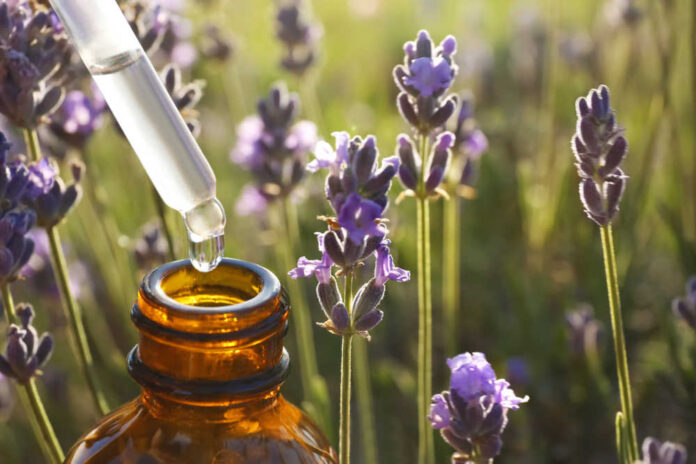
Most people have approximately 80,000 to 120,000 hairs (or hair follicles) on their head, and tend to shed around 100 hairs daily.
Each strand of healthy hair grows about 0.35 mm per day (or 0.5 inches per month).
Hair growth is influenced by a variety of factors, including age, hormones, diet, stress, and certain medications. While some of that might be beyond your control, there are still things you can do to encourage healthy hair growth.
Healthy Hair Care Routine
The first step to aiding healthy hair growth is creating and following a healthy hair care routine.
This includes:
- Wash your hair with a shampoo and conditioner that is right for your hair type
- Avoid or limit tight hairstyles that can damage your hair
- Brush your hair gently using a wide-toothed comb
- Be extra careful when your hair is wet—wet hair is more vulnerable to breakage
- Avoid or limit exposure to heat, including hot water, blow drying, and flat ironing
- Wear a hat or head covering outside to avoid damage from sun exposure
- Avoid using harsh chemicals on your hair, including dyes and bleaches
- Trim your hair regularly to reduce split ends
Healthy Eating for Healthy Hair
Your hair needs a variety of nutrients to grow strong and healthy. These nutrients come from the food you eat, and they travel through your blood to reach your hair follicles—the tiny pockets in your skin where hair growth begins.
If your diet doesn’t provide enough of the right nutrients, your hair may become weak and brittle, and you may even experience hair loss.
To encourage healthy hair growth, make sure to eat a diet that includes:
Protein: Hair is primarily made up of a type of protein called keratin. To produce keratin, your body needs amino acids from protein-rich food. Good sources of protein include:
- fish
- meat
- poultry
- beans
- tofu
- nuts
- seeds
Vitamins and minerals: In addition to protein, your hair needs other nutrients, including:
- vitamin A
- vitamin B7
- vitamin C
- vitamin D
- vitamin E
- iron
- zinc
You can get most of these vitamins and minerals from a well-rounded diet that includes lots of fruits, vegetables, whole grains, and lean protein.
Healthy fats: As your hair grows out of your follicles, it passes through a gland called the sebaceous gland. This gland produces an oily substance called sebum, which helps keep your hair healthy, protected, and moisturized. Healthy sources of fats include:
- fish
- avocados
- nuts
- seeds
- vegetable oils
Reduce Stress
We often refer to stressful situations in terms of “pulling your hair out.” But even if you aren’t literally yanking on your hair, stress can still contribute to hair loss.
When your body senses a potentially dangerous situation, it goes into “fight-or-flight” mode. This triggers a release of hormones, including cortisol, which temporarily halts non-essential functions to free up energy and resources to respond to the threat.
While this response is beneficial in life-threatening situations, it can take a toll on your body when the stress of everyday life constantly activates it. If you’re constantly under stress, the normal hair growth cycle may be disrupted, leading to early hair shedding and slower hair regrowth.
To encourage healthy hair growth, find ways to reduce stress healthily. Proven safe and effective stress-relievers include:
- exercise
- mindfulness meditation
- deep breathing
- progressive muscle relaxation
- spending time in nature
- laughing
- listening to music
- spending time with friends and family
- therapy
Prescription Medications
If you are concerned about your hair loss, you may find benefits in using medication to encourage hair growth.
One medication used to treat hair loss is minoxidil (Rogaine). Minoxidil increases blood flow around the hair follicle, stimulating and extending the growth phase of the hair cycle.
Minoxidil is available over the counter, but you can also get prescription-strength minoxidil from your doctor for higher concentrations of the medication.
Essential Oils
Over the past few years, evidence has emerged that essential oils may be another topical hair loss treatment option.
A small study published in 2021 found that pumpkin seed oil provided similar effects to 5% minoxidil in females with androgenetic alopecia, a common form of hair loss.
Another study observed evidence that rosemary oil may be more effective than 2% minoxidil for treating androgenetic alopecia.
Tea tree oil, jojoba oil, peppermint oil, and lavender oil also show promise as topical hair loss treatments.
You might get even more benefits by combining these oils with scalp massages, which could increase blood flow to the hair follicles and promote relaxation.
Although more research is needed to confirm these findings, the initial evidence suggests that essential oils may be a great alternative option for supporting healthy hair growth.






















